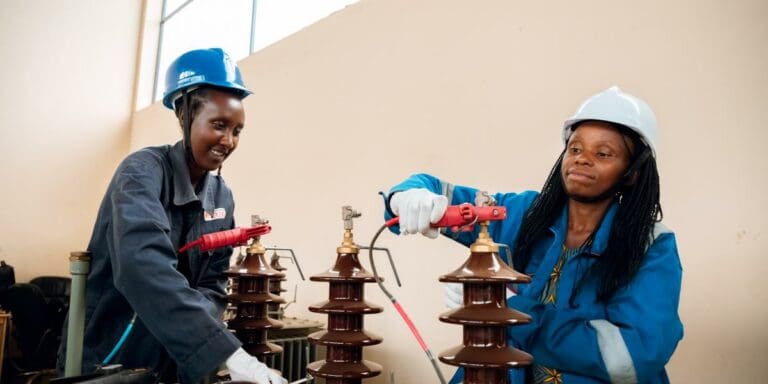As the world commemorated International Women’s Day on Friday, the spotlight fell on a group of remarkable women steering transformative projects and policies that are propelling their countries towards energy security and attracting substantial foreign investments.
According to Africa-focused energy sector investment platform Energy Capital & Power, the visionary women leaders from Namibia, Senegal, South Africa and Uganda are not only breaking barriers but also redefining Africa’s role on the global energy stage.
“With Senegal, Uganda, Namibia and South Africa at the helm of female leaders within their respective ministries, these markets have attracted billions in foreign investment and are home to some of the most dynamic upstream developments on the continent,” Energy Capital & Power said in a statement.
Namibia’s Petroleum Commissioner Maggy Shino was cited as one of the continent’s shining lights in the energy sector.
“Serving as Petroleum Commissioner of Namibia’s Ministry of Mines and Energy since October 2015, Maggy Shino has played a pivotal role in securing upstream investment from leading IOCs, with TotalEnergies set to invest roughly $300 million in 2024 alone,” the statement said.
With over 15 years in petroleum geological, geophysical and environmental management fields, Shino has cemented Namibia’s status as a world-class frontier oil and gas market with strong on- and offshore prospecting potential.
Following five offshore hydrocarbon discoveries, Namibia is currently conducting further appraisal work – as well as new seismic and exploration activity in the Owambo, Kavango and Orange Basins – and is on the path to first oil production by 2030.
Since her appointment in November 2020, Senegal’s Petroleum and Energies Minister Sophie Gladima has orchestrated one of the country’s most pivotal periods.
Under her leadership, Senegal anticipates first oil and gas production this year from the Sangomar Field Development and the Grand Tortue Ahmeyim (GTA) LNG project.
“Minister Gladima successfully advanced these projects – which total nearly $10 billion in foreign direct investment – in the face of COVID-19 and demands for cross-border cooperation with Mauritania, whose maritime border with Senegal houses the GTA LNG project,” Energy Capital & Power said.
Deputy Mineral Resources and Energy Minister Nobuhle Nkabane is driving an exploration agenda in South Africa.
“Utilising South Africa’s Gas Master Plan, Dr. Nkabane has positioned natural gas as a means of improving energy security, reducing heavy-polluting fossil fuels and establishing domestic LNG production through recent discoveries like the 3.1-billion-cubic-feet Mpumalanga discovery.”
Under her leadership, her ministry is also implemented a school outreach programme last month aimed at encouraging young people in science, technology, engineering and mathematics (STEM) fields and developing a future workforce for the country’s mining and energy sectors.
Appointed as the Minister of Energy and Mineral Development of Uganda in June 2021, Ruth Ssentamu is another female leading frontier market developments in Africa.
She has overseen implementation of Uganda’s ambitious Lake Albert Development, home to the TotalEnergies-operated Tilenga and China National Offshore Oil Corporation-operated Kingfisher fields.
Exploration drilling is already underway under the project, with a staggering $10-billion investment driving Uganda’s energy aspirations.
“The country is also at the centre of the planned East African Crude Oil Pipeline, which will transport Ugandan oil to the Port of Tanga in Tanzania and represents the single largest investment in either country to date,” the statement said.
It said the women exemplify leadership, innovation and resilience, with their contributions not only shaping their respective countries’ energy futures but also inspiring a new era of female leadership in Africa’s energy sector.
JN/APA


